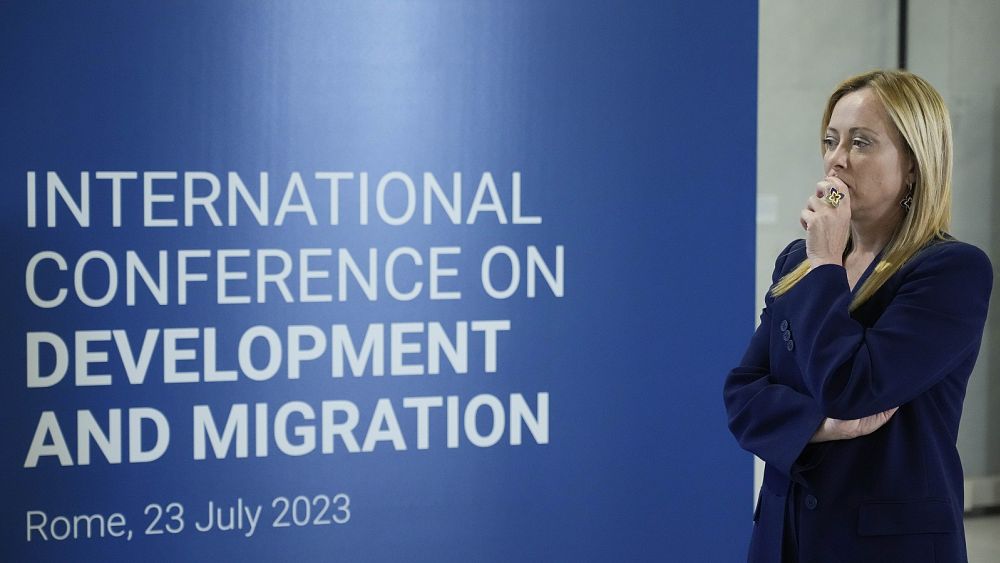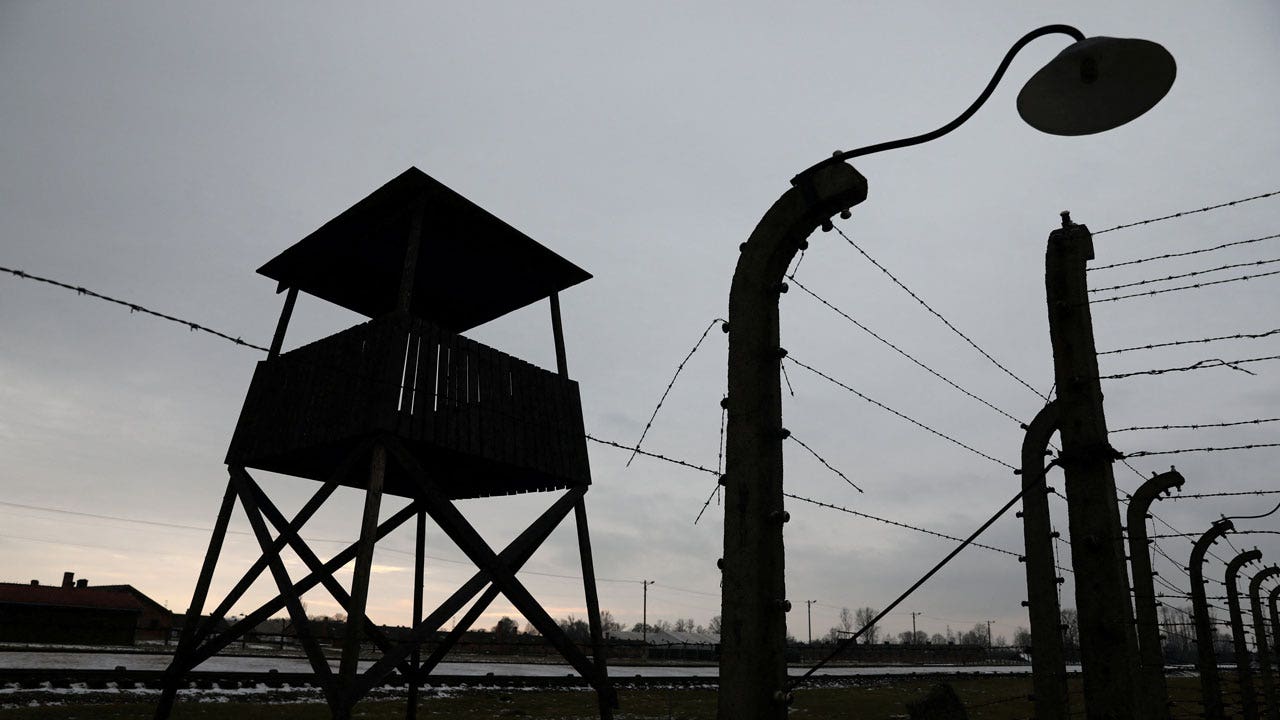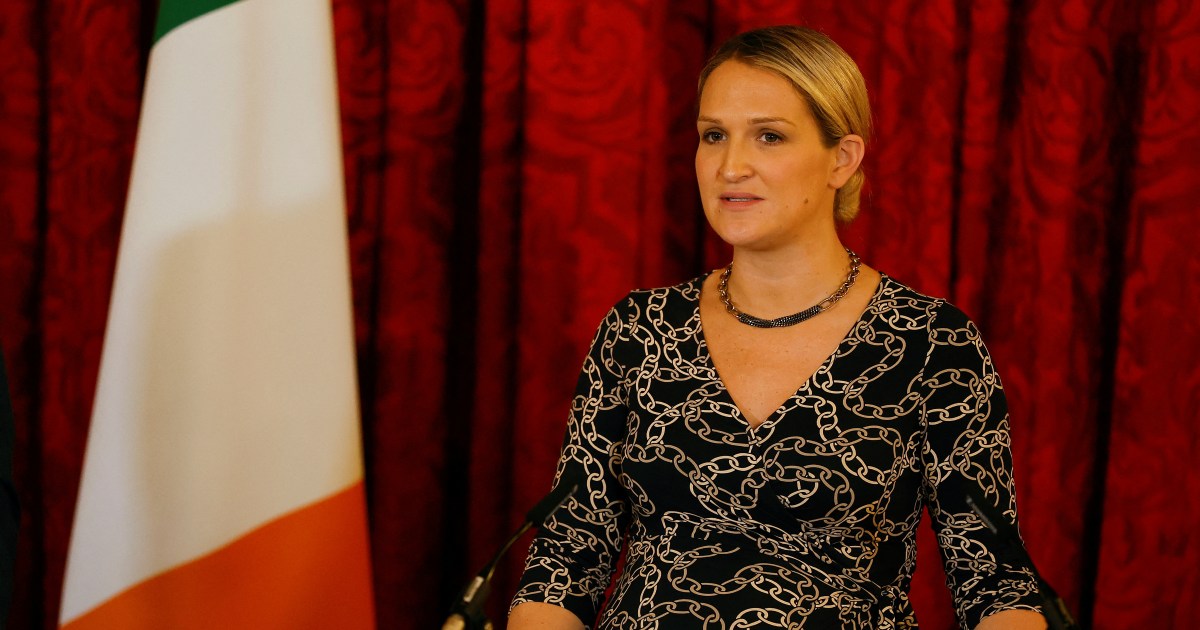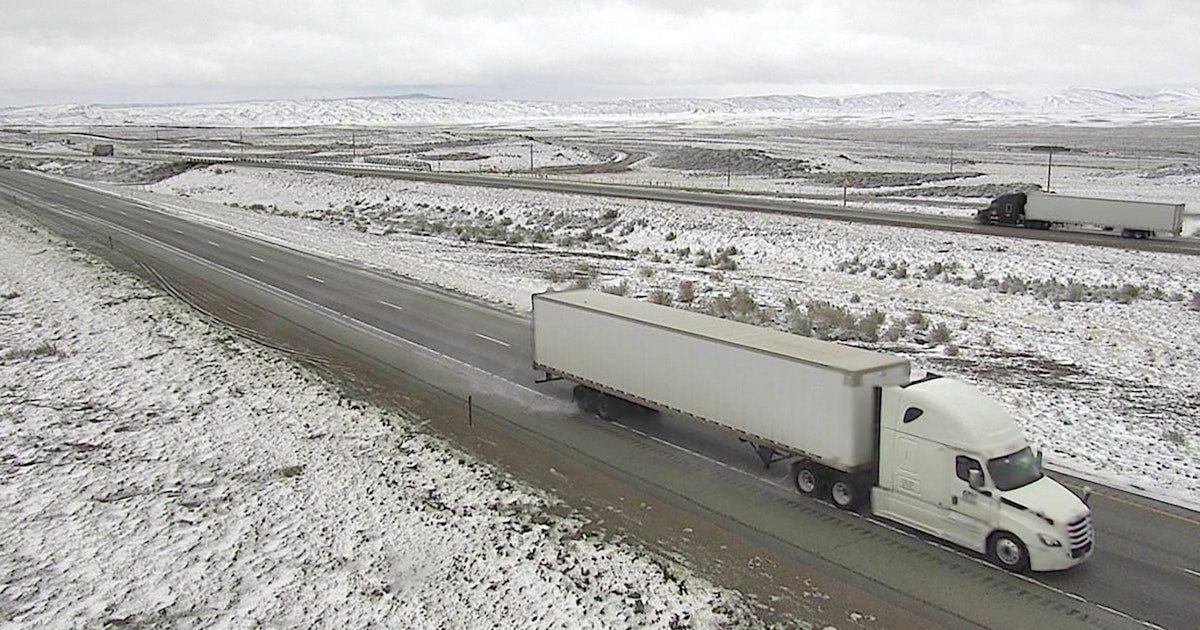World
What is the ‘Rome Process’, Meloni’s plan to curb irregular migration?

It’s the latest in a raft of European efforts to ‘externalise’ migrant controls by outsourcing them to third countries.
Italian Premier Giorgia Meloni is trying to depict her new agreement with Middle Eastern and African countries as crucial to deal with irregular migration — experts are dubious.
The ‘Rome Process’ agreed on Sunday aims to tackle the root causes of illegal migration — including conflict, economic hardship and climate change — and crack down on migrant smugglers. The twenty countries that signed up will also partner on clean energy and to improve employment perspectives in emerging economies.
It came after the EU signed a €105 million deal with Tunisia to stem the flow of irregular Mediterranean crossings and boost returns.
But experts warn externalisation is not a silver bullet for the EU’s migration woes.
“I don’t see the Rome Process as a major step, but rather as yet another initiative to address migration into Europe,” said Luigi Scazzieri, a senior research fellow at the Centre for European Reform.
“Europe is trying to attract more cooperation to stem migration flows and return migrants from countries of origin and transit. In turn, they are trying to extract more money and political attention from Europe,” he added.
One of many externalisation measures
The main objective of the new alliance is to tackle criminal networks that illegally smuggle migrants into Europe in dire conditions, contributing to a rising migrant death toll. Almost 2,000 people are estimated to have died attempting to cross the Mediterranean into Europe this year.
“It is our duty of course to take care of our states, but it is also our duty to take care of the fate of these people,” Giorgia Meloni said Sunday.
Migrant smuggling has become a widespread and lucrative criminal activity, with a recent surge seen in illegal groups operating in countries such as Tunisia and Libya, gateways into Europe via the Mediterranean route.
The conclusions of Sunday’s conference foresee new bilateral or multilateral agreements between countries to combat migrant smuggling, including transnational coordination to prosecute smugglers and new measures to track and freeze their illegal profits.
Opening safe, legal migration routes
But although irregular migration is a problem for the EU, the bloc faces another, more pervasive problem, for which migration provides a solution: labour shortages due to its ageing and declining populations.
The Rome Process aims to address that by fostering legal and safe pathways for migration.
“Meloni has changed tone on legal migration, aware of labour shortages in Italy. But she has not changed tone on illegal migration,” Scazzieri said.
“She is attempting to make a distinction between legal and illegal migration, hoping that her supporters will see the difference,” he added.
“I think her shift also reflects a recognition that she needs to offer third countries some legal migration routes if she wants them to co-operate more in terms of reducing illegal migration flows.”
Tunisia deal a blueprint
The EU is hoping its new memorandum of understanding with Tunisia to stem illegal migration into Europe can be used as a template for future bilateral partnerships, as Commission chief Ursula von der Leyen reiterated on Sunday.
Government representatives from Morocco and Egypt, countries rumoured to be next in line for a similar agreement, were present at the conference.
But this is stoking fears the EU is offloading its responsibilities to third countries through such deals.
“This agreement joins a plethora of agreements, initiatives and processes initiated in the EU to manage the external dimension of migration,” according to Dr. Eleonora Milazzo, Joint Research Fellow at the Egmont Institute and the European Policy Center.
“This while the prospects of reaching an agreement on managing the internal dimension of responsibility sharing remain meagre.”
The Tunisia agreement has received criticism from NGOs, humanitarian groups and EU lawmakers as an attempt to outsource migration control to African nations with a questionable human rights record. Tunisian President Kais Saied has previously made racist remarks towards sub-Saharan migrants, and there is mounting evidence Tunisia has been pushing back migrants into the desert on the border with Libya and Algeria, leaving them with no food or water.
“There is a substantial concern that cooperation processes like the one launched in Rome turn a blind eye on the poor human rights track record of many partner countries, leading to more deadly irregular journeys and not promoting safe pathways,” Dr Milazzo said.
Mobilising investments
Details on how the new alliance will be funded have not yet been agreed upon, but members of leading financial institutions including the International Monetary Fund, the Islamic Development Bank and the World Bank were present at negotiations.
A donors’ conference will follow where member nations will agree on a common fund to finance projects. Mohamed bin Zayed Al Nahyan, President of the United Arab Emirates, has already committed $100 million (€90.2 million) to the process.
Italy is expected to unveil the ‘Mattei plan’ for cooperation with Africa in October, focused also on cooperation on energy and curbing migrant flows. When asked how the Rome Process fits in with the Mattei plan, Italian foreign minister Antonio Tajani explained the need for a financing plan that extends to the EU, the Gulf countries, and perhaps Turkey and the USA. “Otherwise you don’t go far,” he explained.
During the conference, Tunisia’s President Saied called for the establishment of a new global financial institution to tackle the root causes of migration. Discussions on a potential bailout from the International Monetary Fund (IMF) for Tunisia recently stalled as Saied refused to implement the reforms demanded by the IMF in return for the loan.
Climate change, in particular, is increasingly seen as a driver of forced displacement, the conclusions also highlight. Von der Leyen named clean energy as a priority area for investments with partner countries, with the EU’s Global Gateway initiative also making €300 billion available for infrastructure projects.
Participating countries also agreed to enhance cooperation with countries and people vulnerable to climate change, and ramp up investments in renewable energy and green, blue and circular economies.
An ‘alliance of equals’
Meloni acknowledged on Sunday that Europe has not always been a thoughtful partner and that “distrust” has sometimes made it difficult to solve common problems. But she stressed the conference was “dialogue between equals, based on mutual respect.”
“There cannot be a competitive or conflictual relationship between Europe and the wider Mediterranean because our interests are much more common than we might first think,” she said.
With the EU set to continue externalising its border controls to third countries, its partners “have an interest to extract greater benefits from the EU for their co-operation,” Scazzieri said. “So these relationships are inherently unstable and have to be regularly re-negotiated.”
For Meloni, this presents an opportunity.
“Meloni’s agenda appears to be about showing that Italy is actively seeking external allies and is proactive on the migration file. Team Europe and her visits to Tunisia have been prominent platforms to draw the EU’s attention on Italy’s role (and interests) in the Mediterranean,” said Dr Milazzo.
Concerns are however mounting over the potential misuse of EU funds through those new kinds of deals.
In some North African countries such as Libya, for example, criminal groups have already infiltrated the national coastguard. Earlier this month, a Libyan coastguard fired at humanitarian boats conducting rescue operations from an EU-funded boat.
Tunisia will host the next high-level event for the alliance, with countries not currently represented also invited to express interest in joining the alliance.

World
Emily Blunt Says She’s ‘Absolutely’ Wanted to Throw Up After Kissing Certain Actors During Filming: ‘I’ve Definitely Not Enjoyed Some of It.”

Emily Blunt got candid during a recent appearance on “The Howard Stern Show” (via People) about how she’s had to fake chemistry over the years with certain co-stars she just struggled to connect with on set. Blunt has acted opposite many high-profile leading men throughout her career, from Matt Damon (“The Adjustment Bureau”) to Tom Cruise (“Edge of Tomorrow”), Dwayne Johnson (“Jungle Cruise”), Ryan Gosling (“The Fall Guy”) and Cillian Murphy (“Oppenheimer”).
“Have you wanted to throw up?” Stern asked Blunt about kissing some of her male co-stars during filming. The Oscar-nominated actor responded: “Absolutely. Absolutely.”
“I wouldn’t say it’s sort of extreme loathing, but I’ve definitely not enjoyed some of it,” Blunt added.
Blunt declined to name any co-star she couldn’t generate chemistry with, but she did say: “I have had chemistry with people who… I have not had a good time working with them.”
“Sometimes it’s a strange thing. Sometimes you could have a rapport that’s really effortless, but it doesn’t translate onscreen,” Blunt continued. “Chemistry is this strange thing. It’s an ethereal thing that you can’t really bottle up and buy or sell. It’s like there or it’s not…It’s just easier when you have a natural rapport with someone.”
Blunt has been acting for so long that at this point she has a formula down for how to build chemistry, saying: “I’ve got to find something I love about everybody. I have to find something … Even if it’s one thing.”
“It might be that they have a nice laugh or I like how they speak to people. They’re polite. I mean, it might be something random,” Blunt explained. “But find something you love about that person or something you love about them as the character and then kind of lean into that.”
Blunt earned an Oscar nomination earlier this year for her supporting role in Christopher Nolan’s “Oppenheimer,” which took home the Academy Award for best picture. She’s currently on the big screen in Universal Pictures’ action romance “The Fall Guy,” co-starring Ryan Gosling.
World
Holocaust survivors visit Auschwitz for annual March of the Living, reflect on Oct. 7 attacks

Several thousand Jews, including Holocaust survivors personally affected by the Oct. 7 Hamas attacks on Israel, walked through the former Auschwitz Nazi German death camp on Monday for the annual March of the Living ceremony in Poland.
Walking along the 1.8 mile path towards the crematoria of Birkenau, they paid tribute to the millions of Jews murdered by the Nazis during World War Two.
This year’s ceremony was overshadowed by the events last year when 1,200 people were killed in a Hamas-led rampage through Israeli towns and 253 hostages were taken, according to Israeli tallies.
HOLOCAUST SURVIVORS CONFRONT RISING DENIAL, ANTISEMITISM IN NEW DIGITAL CAMPAIGN
Daniel Louz, a 90-year-old whose hometown Kibbutz Beeri lost a tenth of its residents to the Palestinian attackers, came to the Auschwitz camp on Monday for the first time since his mother’s family was killed there in 1942.
A wooden guard tower stands at the site of former Nazi German concentration and extermination camp Auschwitz II-Birkenau during ceremonies marking the 77th anniversary of the liberation of the camp and International Holocaust Victims Remembrance Day, in Brzezinka near Oswiecim, Poland, on January 27, 2022. (Jakub Porzycki/Agencja Wyborcza.pl via Reuters/File Photo)
“I am convinced that on October 7 in Beeri the good souls (of the Holocaust dead) protected me and did not let the Hamas criminals shoot at our home,” Louz told Reuters. “So that I might be able to tell the story. I am really thankful to you all.”
More than 1.1 million people, mostly Jews, perished in gas chambers or from starvation, cold and disease at Auschwitz, which Germans set up in occupied Poland during World War Two.
More than three million of Poland’s 3.2 million Jews were murdered by the Nazis, accounting for about half of the Jews killed in the Holocaust.
“Prior to October 7 it is my belief … that the worst event in human history happened on these grounds. That this place, the very word Auschwitz, speaks volumes in one word about fear, death, destruction, annihilation,” Phyllis Greenberg Heideman, President of the International March of the Living, said during Monday’s event.
“And then came October 7, and perhaps we have to come as a people to the realization that perhaps in some ways the Shoah (Holocaust) isn’t over for us. It’s not a competition, certainly not a comparison, it’s a continuum.”
World
Tech compliance reports, Newsletter

This week’s key events presented by senior tech and industry reporter Cynthia Kroet
Key diary dates
Monday 6- Wednesday 8 May: High-Level Conference on Antimicrobial Resistance (AMR) organised by the Belgian presidency of the Council of the EU.
Monday 6 May: Deadline for online platforms regulated under the Digital Services Act to submit transparency reports.
Tuesday 7 May: NGO Seas at Risk to publish report on under-sea mining.
In spotlight
EU platform rules return to the spotlight this week, since today (6 May) is the deadline for the largest online platforms – those with more than 45 million users per month – to hand in their transparency reports under the Digital Services Act (DSA).
It’s the second batch of reports after the stringent rules started applying to the likes of Facebook, Amazon and TikTok last August.
With the submission of the first reports in October, platforms were scrutinised over the low number of content moderators they had in some of the smaller EU member states. Facebook has a single employee looking at Maltese content, and three in Estonia, claiming that much of the process is automated. In comparison, TikTok, which has fewer users per month, has six people looking at Estonian content and none for Maltese.
In light of the latest DSA probes started by the European Commission last week: into Facebook’s and Instagram’s handling of disinformation and ability to stop Russian fake news, all eyes will be on platforms’ election preparedness. And it remains to be seen if the social media platforms have taken more action compared to half a year ago.
With just about a month to go to the European Parliament election, the Commission is trying to ramp up platform preparedness for the poll. Stress-tests last month (24 April) were designed to help mitigate risks that may impact the integrity of elections and their services, for example.
However, as the latest Facebook and Instagram probes show, the Commission largely counting on the willingness of mother company Meta to comply; since there is no deadline for when the probes might end.
Policy newsmakers
@Kergueno @Uspaskich
MEPs interests
MEPs collectively earn more than €8.6 million a year from outside jobs – including from private companies that also actively lobby on EU policy, according to a report published by Transparency International EU today (6 May). Topping the list is Lithuanian MEP Viktor Uspaskich, who declares €3,000,000 per year working for a company called Edvervita UAB. The group, including Raphaël Kergueno, senior policy officer at Transparency, has called for EU lawmakers to be banned from moonlighting, as figures show over two thirds of the 705 deputies disclose activities in addition to their core role.
Policy Poll
Should MEPs elected to the next European Parliament be permitted remuneration:
From MEP salary alone
From additional side jobs
Subscribe here to see the results of last week’s poll and stay informed on the latest EU policy developments with our weekly newsletter, “The Policy Briefing”. Your weekly insight on European rulemaking, policy issues, key events, and data trends.
Data brief
-

 Politics1 week ago
Politics1 week agoColumbia University’s policy-making senate votes for resolution calling to investigate school’s leadership
-

 News1 week ago
News1 week agoBoth sides prepare as Florida's six-week abortion ban is set to take effect Wednesday
-

 Politics1 week ago
Politics1 week agoGOP Rep. Bill Posey won't seek re-election, endorses former Florida Senate President as replacement
-

 World1 week ago
World1 week agoBrussels, my love? MEPs check out of Strasbourg after 5 eventful years
-

 Politics1 week ago
Politics1 week agoHouse Republicans brace for spring legislative sprint with one less GOP vote
-

 World1 week ago
World1 week agoAt least four dead in US after dozens of tornadoes rip through Oklahoma
-

 World1 week ago
World1 week agoRussian forces gained partial control of Donetsk's Ocheretyne town
-

 Politics1 week ago
Politics1 week agoAnti-Trump DA's no-show at debate leaves challenger facing off against empty podium



















